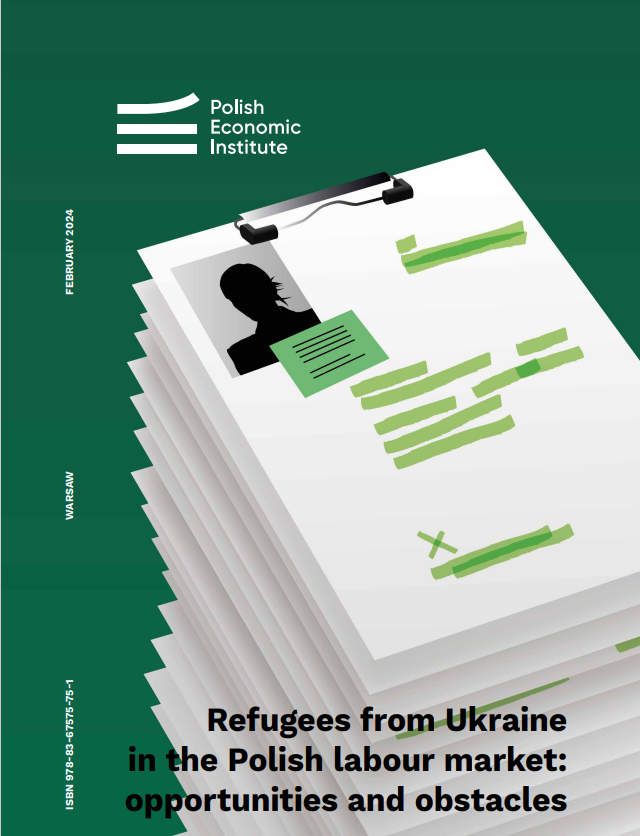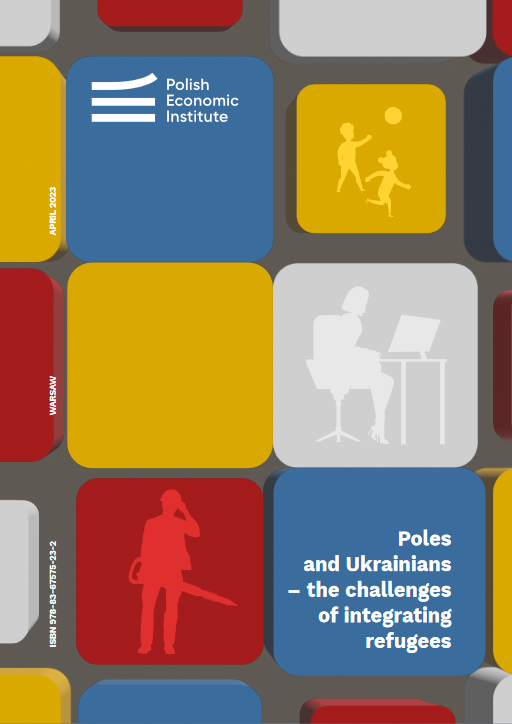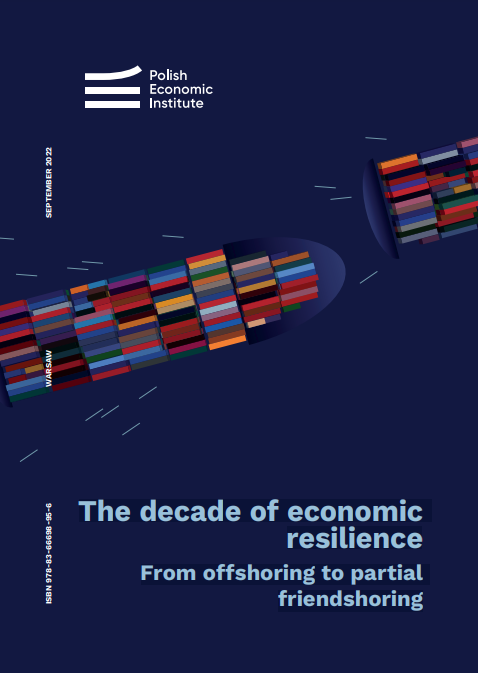65% of war refugees who came to Poland from Ukraine are in employment. The employment rate is currently the highest among Organisation for Economic Co-operation and Development (OECD) countries. Research conducted by the Polish Economic Institute shows that Ukrainian refugees face various challenges in the Polish labour market and sometimes experience unequal treatment. In several of the industries surveyed that do not require specialised qualifications, employers respond less frequently to CVs sent by Ukrainian women compared to those sent by Polish women. The difference of nearly 30 % is a signal of potential discrimination at the initial stage of recruitment, according to the latest report by the Polish Economic Institute 'Refugees from Ukraine in the Polish labour market: opportunities and obstacles'.
Over 1 million Ukrainians who sought refugee after Russia invaded Ukraine in February 2022 are currently in Poland. 80% of them believe that Polish society has a positive attitude towards them. However, Poles’ views on refugees’ situation is clearly changing. The percentage who believe that Ukrainian refugees are in need of assistance has fallen from 84% to 50% since the Russian. In its report Poles and Ukrainians — the challenges of integrating refugees, the Polish Economic Institute analyses Poles’ attitudes towards refugees from Ukraine.
Russia’s invasion of Ukraine has been accelerating changes in the existing model of the functioning of the world economy. Supply chain resilience is gaining in importance. The EU is facing a major challenge of reducing its dependence. At present, 76 per cent of oil and 68 per cent of gas imports in the EU are from non-OECD countries. Simultaneously, for as many as 11 of the 30 raw materials critical to the energy transition, the EU’s dependence on imports exceeds 85 per cent. More than 7 per cent of EU imports are products with a high degree of dependence on deliveries from outside the EU-27, including over 4 per cent among key manufacturing ecosystems such as electronics, energy and health. The EU is also twice as dependent as the US on demand in non-OECD countries. Therefore, changes in the current supply chain seem necessary – according to the Polish Economic Institute’s report entitled ‘The decade of economic resilience. From offshoring to partial friendshoring’.




